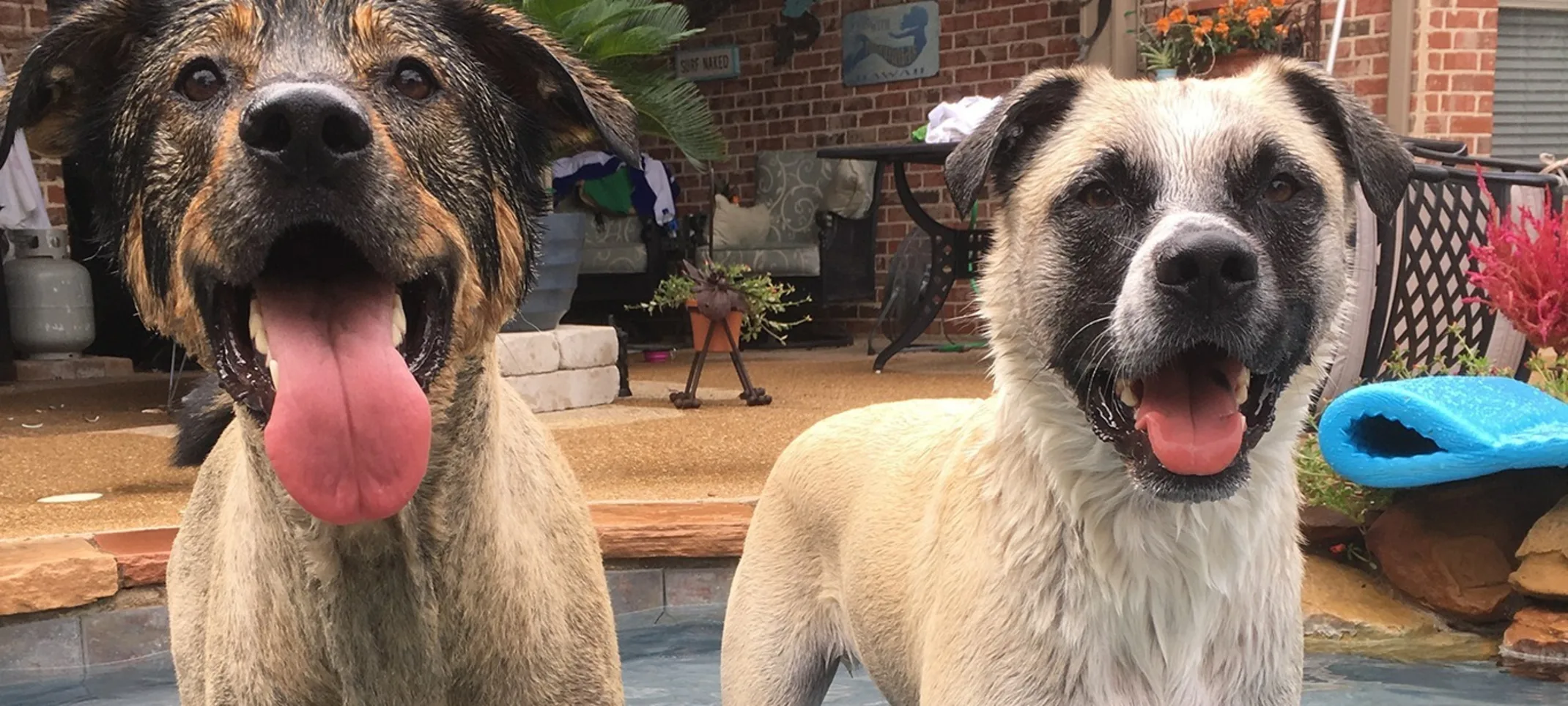Roanoke Animal Hospital TX
Heat Stroke
Summer in Texas can be brutal for people and their pets. Here are some facts and preventative tips about heat stroke.

Heat stroke (also known as hyperthermia) is an elevation in body temperature above the normal range. Elevated body temperatures result when heat-dissipating mechanisms of the body cannot accommodate excessive heat. Temperatures can escalate to 106°; which can lead to multi-systemic organ dysfunction and failure. Humidity seems to play an important factor for our Texas pets. Many animals are acclimated to the heat, but suffer from heat exhaustion with a combination of heat and humidity.
We typically see heat stroke more commonly in dogs than cats. Any breed can be affected. Older pets or pets with underlying medical conditions (heart disease, respiratory disease, osteoarthritis, obesity) can be more susceptible.
Signs of hyperthermia are: panting, drooling, red gums, high heart rate, bruising of skin, bloody vomitus or stool, muscle tremors, seizures, weakness or disorientation.
Early recognition is essential and could save your pets life. If you are concerned that your pet could be suffering from heat stroke, here are some cooling tips to perform prior to coming to the vet hospital:
Spray or immerse in water. Water should be cool, but NOT cold. DO NOT cool too quickly or use ice.
Apply evaporative cooling agents such as isopropyl alcohol on foot pads, armpits, and groin.
It is important not to cool too quickly because hypothermia can occur (rebound swing of temperature in the opposite direction).
Even with aggressive therapy, prognosis can be guarded.
Top Ten Tips to Keep Your Pet Cool
Outdoor pets should have access to fresh water at all times.
Provide your outdoor pets with well ventilated shelter or shade.
Carry water for your pets when going on walks of any length.
Allow your pets to walk on grass rather than hot concrete or asphalt when possible.
Exercise should be limited to early morning or late evening hours.
Indoor pets should not be left outdoors unsupervised for long periods of time.
Pets should not be left unattended in vehicles for any length of time.
If air conditioning is not provided or under repair, indoor pets can spend the day with the vet or a local kennel facility.
Use caution when starting exercise routines in the sedentary/inactive pet.
Remember, you do not have to feel overheated for your pet to be!
